Is It Possible to Charm and Satisfy Every Customer? Would You Really Want To?
We’ve all been there, we’ve all experienced it if you have ever worked retail, or in a restaurant, or in any service situation for that matter: There’s simply no pleasing certain people. We all know that in garden centers for sure, especially if you have worked a spring or holiday season.
We’re outnumbered, we don’t have the bandwidth to be all things to all people, and the numbers simply don’t make sense. From time to time, I think it’s a great point to review and take in one more time as we all come down off the “spring high” and mellow into the long days of summer.
The Feeling of Responsibility
Years ago, I was working with a high-end landscape install firm. I loved that job. It was some of the hardest work I’ve ever done in my life, but it was an incredible education. At one particularly busy point, I was sent to go do a quick container design install on behalf of my boss. The boss gave me all of the pertinent information, the address, what needed to be planted, etc.
I set about completing my task and was quite proud of myself as I thought the container looked great. As per usual, if the client is home I would always let them know that I’m done, and I would ask if they wanted to see the container before I left.
This was where everything fell apart. The client didn’t want to see but gave me a smile and seemed pleased, so I was on my way … until the next day when I got called to the boss’s office to explain what had gone wrong. “HUH? I’m SO confused. I have no idea!” So, the following day the boss took me to the client’s home, so she could personally ask what the problem was as I stood there and listened.
Basically, this woman was not going to be happy with anything anyone ever said or did, and that was plainly obvious after 30 seconds. The worst part of the whole incident? Once the boss and the client chatted for a few minutes, the client turned to me with the most awful, condescending and demeaning tone I have ever heard anyone use as she said to me, “But good effort honey.” Stabbing me in the heart would have been less offensive.
At that very moment, I knew that my boss understood how awful and hurtful that small phrase was, and she also realized that she didn’t warn me effectively that this person had a previous record of being a terrible client. She apologized profusely for essentially setting me up to fail. She felt awful about it for weeks.
The boss took full responsibility, and they promptly fired the client for her treatment of me. I have never ever forgotten that lesson. It’s come in handy more than once in the last 30 years about my own clients and customers.
Options Versus Overload
When you’re a creator, a designer, a salesperson or a server in a restaurant there WILL be people who don’t like you, what you create, what you sell or what you bring to the table. No matter what you do. And that is OK.
This is why there are ice cream shops called “31 Flavors,” not “247 Flavors.” No one is going to be able to carry ALL of the ice cream options that are ever asked for, the weird flavors are going to go bad sitting around waiting to be chosen. Besides, who wants to wait in line behind the person taste-testing all 247 flavors before making their choice?
So, why do garden centers feel apologetic when we can’t provide all 10 million plant options available to our customers at all times, and why would you want to provide that? Clearly, we’re not going to charm, cajole and make every single plant palatable to all tastes, are we?
No one walks into Starbucks and asks for deep-dish Chicago-style pizza and actually expects to get it. They wouldn’t dream of it because they know that’s not what Starbucks does best. It’s not their shtick.
As a confirmed “people pleaser,” I learned that I have to let go of that attitude as fast as possible or it will become toxic, and I’ll stew over disappointing that person for days, if not weeks. It weighs us down and keeps us from focusing on the amazing customers right in front of us. Sure, we all want a 7-foot tall weeping, bonsai evergreen that flowers year-round and is edible that also needs zero maintenance in a pot in full shade, but it’s not going to happen now, is it?
Frustration for the garden center comes when the customer expectation doesn’t coordinate with what we’re putting out there on our marketing.
In this day and age of ordering anything without haste online, the customer isn’t connected to the fact that we deal with living things. They have a lifecycle and occasionally have problems or aren’t suited to the demands we have of them after seeing them on Facebook or what I now call “PinstaGram.”
We can grow 1,000 different types of tomatoes and perennials, yet there will always be the one person who storms out in a huff because we don’t have “xyz plant.” Yet, for some reason WE feel guilty about “choosing to focus on what’s optimal for this climate” or “we tried it and it didn’t sell well for us.”
Can you fathom the chaos of Starbucks trying to carry every single type of coffee bean available no matter how rare and obscure? But, what happens when Starbucks or your favorite restaurant (your favorite wine shop … you get it) decides to highlight who this magnificent and amazing coffee bean or wine grape came from?
They’re not trying to carry thousands of labels; they’re going to show you why THIS one matters. Why the buyers took the time to make sure you know about THIS coffee or THIS wine because THIS grower made it SO special.
They want you to understand the relationship they have with this company, why they were chosen specially to partner with and bring this product to YOU!
Until we can all figure out a way to make our customers and clients understand that plants are not commodities that come from vast warehouses just waiting for our order, we will all have to choose which face we are going to present to that customer.
They can either choose to purchase what we’ve presented for them with careful consideration, or we need to be fully OK with a pat on the head and a “Good effort, honey.” I’m personally choosing option A.






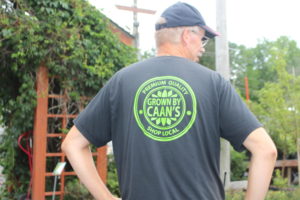
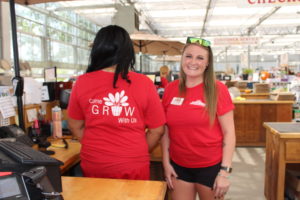
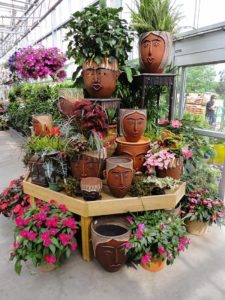
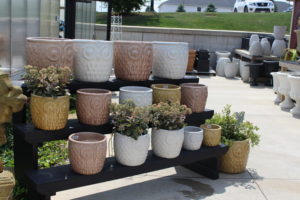

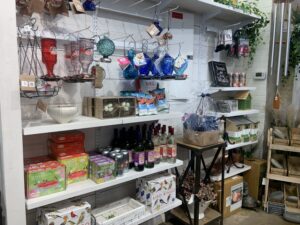

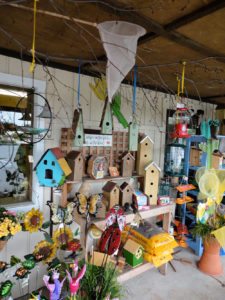
 Videos
Videos





